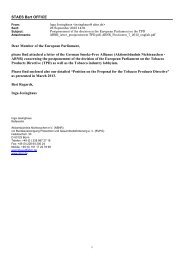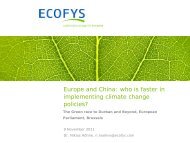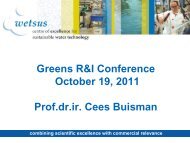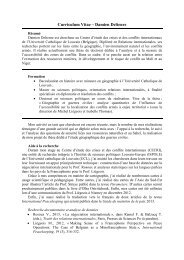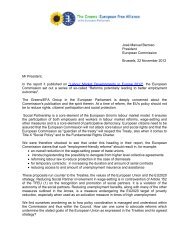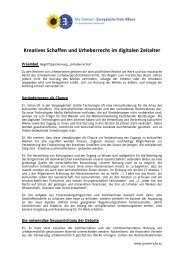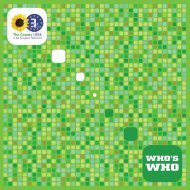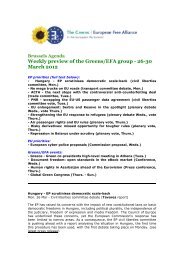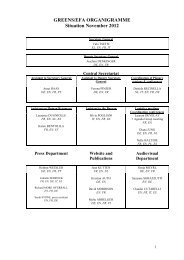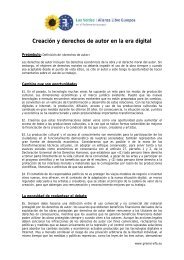Agro-Biotechnology: - The Greens | European Free Alliance
Agro-Biotechnology: - The Greens | European Free Alliance
Agro-Biotechnology: - The Greens | European Free Alliance
You also want an ePaper? Increase the reach of your titles
YUMPU automatically turns print PDFs into web optimized ePapers that Google loves.
12 | Cloned farm animals - a ‚killing application‘? | Technical problems<br />
2. Technical problems and adverse effects on<br />
animal health related to SCNT<br />
Many technical problems related to current technologies used in animal cloning<br />
are reported in the opinions of EFSA (2008a, 2009), EGE (2008) and the<br />
reports of the 'cloning in public' project (Gjerries & Vatja, 2005), and in reports<br />
by the US FDA (2008) and Center for Food Safety (2007). <strong>The</strong> adverse effects<br />
observed are related to systemic disturbances in the regulation of the genome<br />
and cannot be confined to single genetic information. Various effects are<br />
summarised under the expression 'Large Offspring Syndrome' (LOS), but these<br />
effects have many differing causes and a broad range of symptoms. <strong>The</strong>se technical<br />
problems and observed adverse effects give rise to questions concerning<br />
food safety, animal welfare and the biological integrity of cloned animals.<br />
Fig. 2: Five<br />
critical nodes for<br />
assessing risks<br />
from cloning of<br />
animals for food<br />
production<br />
2.1 Adverse impact on animal health<br />
<strong>The</strong> artificial embryo produced by SCNT must first be 'reset' to totipotency 11 ,<br />
to enable it to start full embryonic and foetal development. This process of<br />
reprogramming interferes with epigenetic mechanisms that control gene<br />
expression 12 . Failure of reprogramming, which can occur to varying degrees,<br />
is the cause of many observed adverse health effects affecting the clones. But<br />
changes in mitochondrial functions as well as chromosomal disorders and<br />
silent DNA mutations are also observed and/or discussed as adverse factors impacting<br />
animal health. Some overview is given by Gjerries & Vatja (2005), EGE<br />
(2008), EFSA (2008a), the FDA (2008) and the Center for Food Safety (2007).<br />
Possible adverse effects can be caused and observed at several steps of the<br />
cloning process and the life cycle of the animals. <strong>The</strong> US FDA (2008) uses an<br />
approach in which five critical nodes are to be assessed in regard to adverse<br />
impacts, as shown in Fig. 2:<br />
11 A cell, capable of becoming any cell type in the body<br />
12 Epigenetic processes: Alteration of gene expression by biochemical modifications (e.g. methylation)<br />
of the DNA or of DNA-binding proteins. <strong>The</strong> process does not involve changes in the DNA sequence



